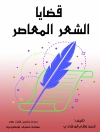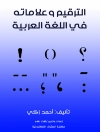First book of essays devoted to Coetzee’s controversial novel, combining critical and pedagogical approaches.
Ever since it was first published in 1999, Nobel laureate J. M. Coetzee’s novel
Disgrace has provoked controversy. Set in post-apartheid South Africa, it follows Prof. David Lurie as he encounters disgrace through his sexual exploitation of a student and then through the shocking gang-rape of his only daughter. The novel’s uncompromising portrayal of the ‘new’ South Africa outraged many, who found the book regressive, even racist. It also challengedreaders worldwide to confront its hard questions. This first book of essays devoted to the novel ambitiously brings together criticism and pedagogy. The ten critical essays and eight essays on teaching
Disgrace grapple with the ethical issues the novel so provocatively raises: rape, gender, race, animal rights.
Disgrace is widely taught in colleges and universities and read in book clubs; the debates it has given rise to will take on fresh life with the release of the upcoming film starring John Malkovich. Unusually, the eighteen contributors to the collection are all faculty members or graduates of the same institution, the Johnston Center for Integrative Studies atthe University of Redlands, and have worked together closely in crafting their essays over the past two years. The volume will be exceptionally useful to teachers of literature, philosophy, and South African culture, to book clubleaders, and to all readers of Coetzee.
Contributors: Nancy Best, James Boobar, Bradley Butterfield, Jane Creighton, Matthew Gray, Pat Harrigan, Gary Hawkins, Rabbi Patricia Karlin-Neumann, Daniel Kiefer, Bill Mc Donald, Michael G. Mc Dunnah, Kim Middleton, Kevin O’Neill, Raymond Obstfeld, Kathy Ogren, Kenneth Reinhard, Sandra D. Shattuck, Patricia Casey Sutcliffe, Julie Townsend.
Bill Mc Donald is Emeritus Professor of English at the University of Redlands, Redlands, California.
Table des matières
Introduction – Bill Mc Donald
‘We are not asked to condemn’: Sympathy, Subjectivity, and the Narration of
Disgrace – Michael Middleton
Beyond Sympathy: A Bakhtinian Reading of
Disgrace – James Boobar
‘Is it too late to educate the eye?’: David Lurie, Richard of St. Victor, and ‘vision as eros’ in
Disgrace – Bill Mc Donald
Disgrace and the Neighbor: An Interchange with Bill Mc Donald – Kenneth Reinhard
‘To Live as Dogs or Pigs Live Under Us’: Accepting What’s on Offer in
Disgrace – Patrick Harrigan
Tenuous Arrangements: The Ethics of Rape in
Disgrace – Kim Middleton and Julie Townsend
Dis(g)race, or White Man Writing – Sandra D. Shattuck
Clerk in a Post-Religious Age: Reading Lurie’s Remnant Romantic Temperament in
Disgrace – Gary Hawkins
Saying it Right in
Disgrace: David Lurie, Faust, and the Romantic Conception of Language – Patricia Casey Sutcliffe
The Dispossession of David Lurie – Kevin O’Neill
Community Reading: Teaching
Disgrace in an Alternative College Classroom – Matt Gray
Out of the Father’s House into a Community of Readers – Kathy Ogren












